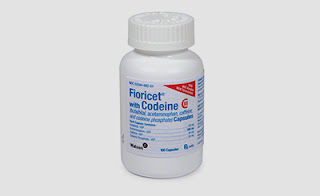Fioricet Addiction: What You Need to Know
Introduction
Fioricet is a medication that is commonly prescribed to relieve tension headaches. However, this medication contains butalbital, a sedative that can lead to physical dependence and addiction if used long-term. In this article, we will explore the dangers of Fioricet addiction, the signs and symptoms to look out for, and the various treatment options available. It is essential to understand the risks associated with this medication, especially for those who have been prescribed Fioricet for an extended period. In this article, we will discuss the potential for addiction and the steps that can be taken to prevent it. Whether you are currently taking Fioricet or considering it as a treatment option, it's important to be aware of the potential for addiction and to seek help if necessary.
What is Fioricet
Fioricet is a medication that contains a combination of three active ingredients: acetaminophen, caffeine, and butalbital. It is used to relieve tension headaches, which are characterized by a constant, dull pain or pressure around the head. The medication is typically taken orally, every four hours as needed, up to a maximum of 6 doses in 24 hours.
Acetaminophen is an over-the-counter pain reliever that helps to reduce pain and fever. Caffeine is also included in the medication as it is known to improve the effectiveness of pain relievers by narrowing blood vessels in the brain, which can help to reduce the pressure on pain-sensitive nerves. Butalbital is a sedative that belongs to the barbiturate class of drugs, which act as a central nervous system depressant. The sedative effects of butalbital help to reduce anxiety and tension and can promote relaxation.
It is important to note that Fioricet can be habit-forming and should be used only by the person it was prescribed for. Long-term use of butalbital can lead to physical dependence and withdrawal symptoms if the medication is stopped suddenly. It is also important to use caution when driving or operating heavy machinery while taking this medication, as it can cause drowsiness. If you have any questions about Fioricet or any other medication, it is best to talk to your doctor or pharmacist.
How Fioricet can become addictive
Fioricet's active ingredient butalbital, a barbiturate, can lead to physical dependence if used long-term. Barbiturates like butalbital can be highly addictive, as they affect the body's central nervous system and can produce a feeling of euphoria. When used over a long period of time, the body can develop a tolerance to the drug, requiring higher doses to achieve the same effect. This increase in tolerance can lead to addiction, as the person may feel compelled to continue using the drug to achieve the desired effect.
Another way Fioricet can become addictive is through recreational use. Some people may misuse Fioricet to get high or as a way to cope with stress, anxiety, or other emotional issues. This type of abuse can lead to addiction as well, as the person may find it difficult to stop using the drug despite negative consequences.
It's important to note that addiction to Fioricet can develop quickly and should be taken seriously. Individuals who have a history of substance abuse or addiction, or those with a personal or family history of mental health disorders, may be at a higher risk for developing an addiction to Fioricet. It is always recommended to use caution and consult with a healthcare professional before starting or stopping any medication.
Signs and Symptoms of Fioricet Addiction
Recognizing the signs and symptoms of Fioricet addiction is crucial in getting help and seeking treatment. Some common signs and symptoms of addiction include:
- Tolerance: needing higher doses of the drug to achieve the desired effect
- Withdrawal symptoms: experiencing physical and psychological symptoms when the drug is not used, such as insomnia, anxiety, and tremors
- Continued use despite negative consequences: using Fioricet despite knowing that it's causing problems in personal relationships, work, or school
- Difficulty in controlling use: unable to stop or reduce the use of Fioricet despite the desire to do so
- Using the drug for non-medical reasons: taking Fioricet recreationally or to cope with stress or emotional issues
- Neglecting responsibilities: neglecting responsibilities at home, work, or school due to drug use
It is important to note that these signs and symptoms can vary from person to person and may not always be obvious. If you suspect that you or someone you know may be struggling with addiction to Fioricet, it's important to seek help from a healthcare professional.
It's also important to note that addiction is a disease and should be treated as such. With proper treatment and support, recovery is possible.
Treatment Options for Fioricet Addiction
Treatment for Fioricet addiction typically includes a combination of behavioral therapy, counseling, and medication-assisted treatment (MAT). The goal of treatment is to help the individual break the cycle of addiction and regain control of their life.
Behavioral therapy: This type of therapy is designed to help individuals identify and change the behaviors that contribute to addiction. It may include one-on-one counseling, group therapy, or family therapy.
Counseling: This can be in the form of individual or group therapy sessions. It aims to address the underlying emotional or psychological issues that may be contributing to the addiction.
Medication-assisted treatment (MAT): This type of treatment involves the use of medications to help reduce withdrawal symptoms and cravings, while the individual is undergoing therapy. MAT is used to help people detox and overcome the physical dependence on Fioricet.
It's important to note that the treatment plan will vary depending on the individual's needs and the severity of their addiction. It's also important to find a treatment program that is tailored to the individual's specific needs, and that provides ongoing support during and after the treatment period.
If you or someone you know is struggling with Fioricet addiction, it's important to seek help as soon as possible. Addiction is a disease that can be treated and recovery is possible with the right support and resources.
Conclusion
Fioricet is a medication that is commonly prescribed to relieve tension headaches, but it contains butalbital, a sedative that can lead to physical dependence and addiction if used long-term. Understanding the risks associated with this medication is essential, especially for those who have been prescribed Fioricet for an extended period.
The signs and symptoms of addiction include tolerance, withdrawal symptoms, and continued use despite negative consequences. It's important to recognize these signs and seek help if you or someone you know may be struggling with addiction to Fioricet. Treatment options include behavioral therapy, counseling, and medication-assisted treatment, which aim to help the individual break the cycle of addiction and regain control of their life.
It's important to remember that addiction is a disease and should be treated as such. With proper treatment and support, recovery is possible. If you have any questions about Fioricet or any other medication, it is best to talk to your doctor or pharmacist.



.png)
Comments
Post a Comment